|
I was midway through reading The Rise of The Humans the new book by Dave Coplin, Microsoft’s Chief Envisioning Officer, when I came across a description that was so good I immediately thought “I should tweet this”. Which would have been ironic given Coplin’s eloquent summary of what he calls “the lie of multitasking” or our increasing inability to concentrate on the task at hand without checking our many social channels. So in the spirit of his argument I stayed reading to the end of what is a charming and insightful call for reflection about what technology offers us but more importantly what we as humans need to understand to exploit it to its fullest potential. In case you are wondering what I wanted to tweet it was his description of a Big Data world as a world where n=all which I think is probably the best summation of Big Data that I have seen and one which cuts to the core of the changes in analytical approaches that many people have yet to come to grips with. According to Coplin “As our sample set approaches n=all (and our tools to understand the sample become ever more powerful), our scientific approach changes. With access to a huge amount of fact, we have to theorise less. The digital deluge will inevitably mean that the data will speak for itself. In other words ours will become a world where correlation not causality becomes king. Coplin describes himself (and his readers to some extent) as “first generation internet users and first generation big data users” and argues for the responsibility that comes with that. Too often we absent ourselves by whining about the invasive actions of companies like Facebook and Google while continuing to sleepwalk into what he describes as “Creepy Valley” a place where consumers and customers “stare at each other across the abyss, where neither is sure what information should be used and how”. He issues a timely call for us all to step up to establish new principles to protect both organisations, and ourselves so that we can extract the value of big data without doing harm. Transparency is key here, transparent companies, organisations and governments are the future and they need to be open about they do with our data and clear what we get in return.
My favorite part of Coplin’s book is when he turns to the importance of serendipity arguing that we should not confuse “the breadcrumb trail laid by recommendation engines with the material for true serendipity”. This is something that has been covered extensively by Eli Pariser in The Filter Bubble but Coplin’s recounting of the origin of the word and the need for us all to have both the powers of observation as well as wisdom when we want to really make sense of things is timely. The Rise of The Humans is a balanced look at the challenges that we all face with the speed of technology change but as befits its title it’s not written for a technology savvy audience. I give talks and training to C suite leaders on Digital Leadership and its definitely going to feature in my presentations and reading list as one of the few books I’ve seen that can be picked up by someone who knows relatively little about technology (or god forbid Big Data). One of the things I notice when I do those talks is how fearful and intimidated people can be when they feel they have fallen behind in their understanding or when they feel overwhelmed by the “digital deluge”. But Coplin is right when he suggests that nobody can any longer afford the luxury of ignorance or fear. We need to understand that the digital deluge is not a threat but a gift to society but it is how we behave as humans that will determine whether we can rise to the challenge to make it work.
2 Comments
There are certain behaviours that remain pretty constant over the course of your life. Values and behaviours that are baked into your DNA. Things that you take for granted that you will always do. Things you could never imagine not doing. Voting is one of those things for me. It may be to do with the number of people in my family who worked in public service, or going further back in my family history, the political involvement of my grandmother in the struggle for Irish independence. Several years ago my husband and I had a heated argument with our son when he told us that none of his friends voted. I trotted out the usual reasons as to why that was a bad thing, about the immorality of not voting, about removing your right to complain if you absented yourself from the political process, about the disenfranchisement of women and the fight for Irish independence and finished by paraphrasing the Churchill quote about democracy not being perfect but the best thing that we have. But after he went to bed I remember feeling more than a bit dishonest because the reason I argued so fiercely was not because I really believed what I was saying, but because I would have felt it immoral to encourage my son to distance himself in any way from the importance of the democratic process, quite frankly I would have felt like a bad parent crossing some rubicon that would take me away from everything I’ve believed and that my family has believed for the longest time. For a nice middle class woman like myself it would be the equivalent of getting a tattoo. Roll forward to 2014 and I realise that in the near decade that I have lived in London, in the same place since we emigrated from Ireland in 2005, not a single politician has knocked on our door to ask us for a vote. I’ll repeat that. Not a single politician has ever knocked on our door. For five of those years there have been three adults of voting age living in our house. Now I know, because I spent a good part of my career in government, that elections are all about numbers and its only the swing votes that matter but there is something staggeringly arrogant about politicians thinking they don’t even have to get out of bed to secure our votes. The clear message they are giving is that either (a) they know which way we vote making assumptions on the general political make up of the ward (b) they have enough votes already in the bag not to care. It’s kind of a Ryan Air approach to politics - you don’t have to provide the equivalent of any customer services because if you need the product then you’ll take what you are given. Now that approach is proving less successful for Ryan Air (having been named by Which magazine as one of the worst 100 biggest brands serving the British market) I wonder how long it will take the political classes to wake up? So I’m guessing if I sit the next one out it won’t make the slightest bit of difference. I’ll still pay my tax, I’m still happy to contribute to the welfare state and I won’t complain about any policy decisions because I absented myself from the process. I just don’t want the experience of making the effort to get to the polling station, trying to decide between candidates that I’ve never met and then being asked to give my polling card to the local councillor or party hack waiting outside so that they can calculate not how I feel but how many others they need to round up to make up their numbers.
I don’t know how I will feel about not voting and whether the ghost of my grandmother will return to haunt me admonishing me on my lack of civic pride and for abandoning a principle she fought for so hard. But I do promise to spend the time thinking about how I can be a better person in the world and what contribution I might make to improve the world for my fellow man. Because if we matter so little to them perhaps its more important that we matter more to each other. I'm going to write a book. It won't be a book about technology. It's going to be a book about being a leader or a manager in a technological age and and an exploration of how the realities of the digital world are changing the theory and practice of modern management and leadership. I am not a digital native. I first learned to type at the age of 16 on a manual typewriter inherited from my grandmother graduating from there to golfball and electric typewriters. I remember the first PC and Mac that I used. I remember my first modem as a thing of wonder and I still miss the wonderful sound that signalled you were connecting with a new frontier of knowledge and yet to be explored experiences. I learned to build my first website using HTML for Dummies and I’ve graduated through MP3 Players, Mini-Discs, Ipods, Ipads, iPhones and Android and 3D printing. I’ve been an advocate of open data and a proponent of its value in transparency, accountability and innovation and I’ve had a fair deal of engagement with technologists and developers at the cutting edge of the digital frontier. And during those years of my own digital adoption and engagement I’ve worked largely in hierarchies, in managerial and leadership positions in the arts, in the media and in government so I’ve experienced first hand the yawning gap that has been steadily opening up between those mangers and leaders who “get it” and those who don’t. Those in the minority who get it understand that technology and the values that underpin the digital mindset have more than kit and products to offer, tantalisingly they offer a way to finally escape the ever present “triangle of despair” of legacy systems, procurement and PRINCE 2. We may have started shaping these systems to support our business needs, to protect ourselves from risk and in an attempt to achieve machine like processing and efficiency. But in the end the triangle of despair has ended up shaping us. Many senior people are bound entirely into the dictates of these systems incapable of innovating or changing even when it is abundantly clear that these systems are no longer fit for purpose. Procurement processes that force organisations and governments to over specify in order to reduce risk will almost certainly result in the acquisition of products or services that are already out of date. Gantt charts intended to create efficiency in project management, setting out step by step approaches to get to a delivery date, force individuals to slavishly follow the boxes missing serendipity and failing to understand that in an age of user need, good beats perfect. Rational approaches to HR management and control are blind to human nature and the needs and desires that drive the digital native and the wider societal forces that are redrawing their commitment to and contracts with their employers. And the reality that most of us have infinitely better technology kit at home then we have in our workplaces means our lives are full of friction at work that encourage us to “workaround” and “hack” if we are to get our jobs done in the most efficient way possible. We are now in the era of zero tolerance for digital failure. Our employees of the future will expect that our internal networks and systems are robust and fast 100% of the time. Anything less and they will expect to work from home where their own networks and connectivity speeds beat yours and they will expect their organisations to trust them to work just as hard at home as they would under your watchful eye.
Companies who want to attract and keep the best talent won’t be able to rely on the value of their global brands if graduates who join are forced to use locked down systems that prevent collaboration both within and without the organisation, or use firewalls that cut these digital natives off from the networks that they have grown up with, broken up with and rely on communicating with 100% of the time, all the time. Future company competitiveness will be a combination of culture, connectivity and speed and the mindset of the digital native will be a powerful force for corporate change. The future belongs to managers and leaders who see themselves not as control pilots but chaos pilots and over the course of my book I hope to explore what might be the most useful tools to have in your cockpit. I'll be exploring leadership theories, the role of MVP in management, the nature of power and influence, the workforce of the future, the value of networks and cognitive outsourcing, rethinking strategy, open data and analytics, growth hackers (vs marketeers) and how you can JFDI since going ugly early is better than sitting around polishing your ideas until you have buffed yourself out of the competition. Now all I need is an interested publisher....if you're out there ping me..... I’m writing this blog post after several frustrating hours trying to generate some sales pipelines in Ireland for my consultancy DSRPTN. I’d been hoping that we could offer some Digital Leadership Workshops that might be of interest to C Suite leaders in Ireland as well as their senior management teams. We know that digital disruption is challenging for many businesses and governments so I quite liked the idea of doing some work at home over the course of 2014. Compare and contrast how this works in the UK and Ireland. Here in the UK I can look for organisations or individuals who have a social presence that I can start a conversation with. I look for them on Twitter and follow them, find them on Linkedin and either email them directly or send them an InMail. So far so good. I can also find people who are following me who can do direct introductions or recommendations so its a fairly frictionless process. Because I am open and visible companies who are on social and who would like me to talk at an event or hold a workshop can find me easily as was the case when Canon were looking for a panel speaker for this event. The recommendation to use me came from (Tom McLoughlan in Accenture) who connected me with (Bob Pickles Head of Public Affairs at Canon) and through that panel I met (Chi Onwurah Shadow Minister for Cabinet Office) so all in all great for me and I hope useful for them. Plus even better I subsequently got to visit London Fashion Week at Bobs invitation (Canon are a sponsor) and got a once in a lifetime chance to see inside the photographers area and some great clothes (I'm not shallow at all really). Things don’t seem to work quite this way in Ireland. Senior leaders who I need to connect with don’t seem to be on Twitter. So you search for them on Google and then you get their LinkedIn profiles. But then they neither have contact details or quite often don't have the facility to send InMail either. Which means that if I want to do any kind of pitch or exploration I have to email the info@ email of their organisations which I’m guessing is not going to be seen by the right people or those with the authority to make decisions. This is bad not only for me but for the chances of leveraging innovation into both business and government in Ireland. In order to be open for business, well you need to be open in every sense of the word. You need to understand that by working in such a closed manner you will continue to only know what you currently know and will never open yourself to the kind of serendipity on which innovation relies. You cannot claim to be a cutting edge consultancy or training institution if the cutting edge can’t find you. In the digital age if you are not searchable and clickable and frictionless to connect with how will you possibly keep your competitive advantage? How do you keep abreast of changes in business models if you are not experiencing the change that is happening all the time on the web, on mobile, in digital economies? How can you claim to be at the top of your game if the people who are shaping the futures of tomorrow are all communicating with each other but not with you? My good friend Chris Taggart once said to me “the only thing that matters in business today is how relevant you are and what your standing in the conversation is”. If you are absent from any conversation that I can see then how can I judge either your relevance or your standing? How do I determine if you are a company or leader that I would like to work with and how will you ever know what I have to offer?
Innovation relies heavily on information flows and not just local but global flows. I’ve been fortunate to benefit in ways too numerous to articulate here from the sharing of knowledge and expertise from people I am connected to online all over the world. As an individual, my world view, my knowledge, my expertise has grown exponentially with my participation in the world of social media and that’s just me - think of the benefits to your companies and organisations? Think of the benefit to your workers and managers of being able to connect with industry leaders, thought leaders, academics, competitors and technologists? Just because your workforce may have been severely cut through the years of austerity does not mean that you can’t access some of the brightest brains in the world at the click of a button. I call this cognitive outsourcing. So you can only afford to hire a certain number of analysts or comms people or data scientists to work FOR you but you can connect with thousands who will work WITH you. Collaboration cannot happen in a vacuum and as the old saying goes from Sun Microsystems “No matter who you are, most of the smartest people work for someone else”. So come on senior leaders in Ireland in government and business show visible leadership that proves you are open for business and innovation. Improve your online presence and join the rest of us in the conversation. You never know we might even be able to help - and if you don’t want to hire me - you'll find loads of others just as good and just as willing to start working on the thorny problems of Leading in Disruptive Environments. After all remember we are only a click away. The concept of data platforms has garnered a lot of coverage over the past few years and the City as a Platform is one that has wide traction in the “Smart City” space. It’s an idea that has been widely promulgated by service integrators and large consultancy firms. This idea has been adopted into the thinking of many cities in the UK, increasingly by local authorities who have both been forced by central government diktat to open their data and who are also engaging with many of the large private companies who sell infrastructure and capabilities and with whom they may have existing contractual arrangements. Standard interpretations of city as platform usually involve the idea that the city authority will create the platform into which it will release its data. It then seeks the integration of API’s (both external and internal) into the platform so that theoretically the user can access that data via a unified City API on which developers can then create products and services. Some local authorities seek to monetise access to this API while others see it as a mechanism for encouraging the development of new products and services that are of value to the state but which have been developed without direct additional investment by the state thereby generating public good from the public task of collecting and storing data. This concept of city as platform integrated by local authorities appears at first glance to be a logical, linear and achievable goal but in my view completely misunderstands a number of key factors; 1. The evolution of the open data/big data market 2. Commercial and Technical realities 3. Governance and bureaucracy I’ll explore these below. The London Datastore is often referred to as a city platform and it has certainly been recognised as a success in terms of outcomes - the wide deployment of various apps such as travel apps which reduce friction for commuters and are spawning a whole new ecosystem of SME’s in London. The visualisation of data which has assisted the academic and research community. The publication of crime data which allows citizens better understand the challenges facing their areas and the integration of data across different boroughs which gives a London wide perspective. The City Dashboard created by CASA in UCL is a great example of what can be done when a city releases its data. But the London Datastore is not a platform. It is a website to which static datasets can be uploaded. For most authorities and certainly for the GLA itself its largest data asset base are static files (usually CSV) which require little technical resource to publish. It is worth noting that the cost of the London Datastore was circa £16,000 and no additional staff were recruited to the GLA for the scoping, development and deployment of the London Datastore (apart from some developer days which were paid to hire a developer to build the website in Drupal). The code for the website is open source and can be freely reused by anyone who wanted to replicate it in their own city. Nor did this take time once the political commitment had been made. The project started scoping in October 2009 and launched on the 5th January 2010 with 50 datasets and a further 150 datasets were published to the website by the end of January 2010. No additional technical training was required for the Data Management Asset Group (GIS and statistical staff) who simply uploaded the datasets as part of business as usual. So the first steps are simple, easily achieved and have no technical barriers. That’s iteration one of open data for a city and that’s achievable in a few short months - not years. Had the London Datastore tried to adopt the platform model (as opposed to the website model) then it would have been impossible to achieve this early start. By the time the London Datastore launched, TfL, for example, were not in a position to confirm how they would release their data, how the API would be configured for data feeds and it took some months for them to open up the access to real time data. When that happened the London Datastore did not seek to integrate their API into the Datastore it simply “pointed” to the real time feeds and timetables which could be downloaded by the developers directly from the TfL developer portal. The advantage to pointing to the real time data feeds for London and for City Hall is that it would be impossible for City Hall to provide service level agreements to the developer community on its API. Integrating different data sources from external bodies is complicated to the degree that different sources can have different licensing models. While open standards and policies are important they are not always clearly worked out. A centralised city API would have put the responsibility for the data delivery at the feet of City Hall and not at the feet of the data providers themselves who have robust monitoring and delivery mechanism with 24/7 service. Put simply if I am a developer or small SME building a product or service on a centralised API and something happens to that city API at 11.00 on a Saturday night - will the local authority be able to respond? Will it offer 24/7 services? Does it have the in-house technical capability to act in an agile manner? It’s not been my experience as a former local authority official that this is how local authority technical teams are constructed. Static data sets are rarely updated at the rate of churn of real time data. Most are updated quarterly or even annually in some cases, so the service provision to the technologist is radically different in this context. The wrong number on a spreadsheet of say environmental data is not going to cause the same difficulty to a product or service in terms of time needed to correct - its not likely to knock out an app that over half a million people have downloaded and depend on for their travel information on a daily basis. The London Datastore was and is both a website and a leadership function using the Mayoral authority to bring other public sector providers into the open data space. It’s leadership paved the way and the centralised location for the data (on the surface) makes it LOOK like a platform but the technical and commercial reality is that it is a federation of its own datasets and links which hopefully makes the user journey for the developer a little more easy to navigate. It also acted as a broker between developers and technologists helping them navigate their way through large bureaucratic structures because that is what public officials are good at and technologists shouldn’t have to be. Since the evolution of the London Datastore there are easier ways to do things and a data market is emerging with vastly lower costs often payable on a subscription basis. There are many small SME’s operating in the open data space who operate at vastly lower costs than large system integrators can offer. This is precisely the SME market and economic stimulus that was behind the Mayoral initiative in London and should be happening in cities throughout the UK. Open the data and let 1,000 flowers bloom and over time SME’s will emerge into credible and solid open data service providers. I declare an interest here with my startup TransportAPI which has six people but now, as a data aggregator for public transport, is providing all of Heathrow Airports public transport data. It is also providing data to Transport for London and Network Rail. The difference between taking data from a city api and from a transport aggregator like TransportAPI is that we offer data as a service - we clean up and stabilise data, we monitor the service, we have clear and open service level agreements that offer discount on down times and that provide value added services. This is what has evolved in the market through the London Datastore initiative. The city does not need to provide the API itself - it needs to bring its datasets (static and simple) to the market and then let the market evolve new business models. It is the service level that is required that is so completely forgotten in the current debate around City as a Platform. You can build a product or service in an experimental way on the cityAPI you can bring your product to proof of concept - but you cannot scale on an API that does not have ongoing and 24/7 service provision and you have to provide that service at a cost that recognises the price point that the market can bear. If you are hoping to sell an app for £1.69 you have to sell a hell of a lot of them to make a business and every penny spent on a service that a large company or the city could provide is going to kill your route to market. So in a few easy steps here is what local authorities in cities need to do: 1. Do it - release what you have in machine readable form on an open source website with clear policies on reuse. If you don’t know what they are then talk to the Open Data Institute. 2. Do more - get any public bodies with whom you have a relationship in the public sector to upload their static data in machine readable form. 3. Do even more - use your authority as a city leader to encourage anyone in the data market (transport authorities, utility companies) to join your ecosystem. Convince them of the benefit to the city and the citizen and then use your website to point to their open API’s. Familiarise yourself with all of the new providers who have come into the ecosystem and who can provide agile and cost effective products and services. 4. Stop using outsourced IT as an excuse. If you have outsourced your IT then make a distinction between digital/data and IT. IT is kit and tin - data is digital and yours. And if that does not work make it clear to your supplier that their intransigence and crippling contracts are a poor offering for your citizens and that when it comes to the next contract negotiation you will be seeking out SME’s who can do this really well and for a fraction of the cost with better results for your citizens. That’s it really. It’s not hard, its not resource intensive and it doesn't cost a lot of money. I’ve seen figures of up to £200,000 for Data Platforms but if you follow the model suggested above you can build a really nice open source website to start and get the ball rolling for a maximum of £20,000 (and that’s being really generous and allowing for some nice design). Probably less because in the end technologists don’t really care what the site looks like they just want the data. Update: Since publishing Tim O'Reilly sums it up very nicely in his response Over the past two weeks I’ve found myself reflecting some more on the whole smart city/intelligent city space prompted largely by the Wearable Futures event curated by @cassierobinson. Cassie kindly asked me to chair the session on Wearable Cities and I was joined on the panel by Tomaz Diez, Tom Armitage, Dominic Wilcox and Jonathan Chippindale CEO of Holition. When I worked for the GLA as Director of Digital Projects for the Mayor I was always struck by the dissonance in the smart city space between the aspirations of the major players such as Cisco, IBM and others and the realities of most cities. I’ve seen more versions of the city as platform diagram than I’d care to mention (other versions includes cylinders) but all built on the rather dubious proposition that you could erect a linear (usually proprietary) platform into a city and hey presto job done. But cities are messy, like people are messy, and are formed like a jigsaw with so many different players - private and public, utility companies, local authorities, transport authorities, data aggregators - all of whom form part of that jigsaw and until they work in harmony will never be greater than the sum of their parts. You will never reach the point of city as platform but you might have some success if you approached the city as mesh where you begin developing open standards and inter-operable systems piece by piece that might eventually join up to increase effectiveness. We the people are the city afterall which is why it was so heartening to listen to the panel talk in such a human centred way about wearable cities. Tom was explicit in his brilliant talk about the rhetoric of the smart cities movement (which is largely under-pinned by exploitation and privatisation) and the more human approach which he exampled in the brilliant Hello Lampost experiment. In summary his was a vision of a city and its infrastructure as an opportunity for play and connections. I first came across Tom’s work in City Hall when I was a follower of the brilliant @TowerBridge (one of the first examples I found of IoT that really made sense) which was created by Tom but is now managed by the City of London Corporation. The story of how that came to be is instructive of corporate vs human approaches in the cityscape. The original account tweeted as the bridge creating this great sense of connection and fun between followers and iconic city infrastructure but was taken over by the City of London Corporation PR team without so much as a word to Tom. It became then a Marketing/Comms account and well, lets just say, the emotional connection was lost completely. I don’t want a bridge broadcasting at me any more than I want a comms and marketing team broadcasting at me. Dominic shared his work on No Place Like Home (GPS Shoes) and some general whimsy and creative thinking about how we could interact differently in the city both in the social sense and using his theoritical proposition for a fingerprint activated, no waiting pedestrian crossing (his drawings are lovely too). Tomaz spoke about his work for FabLab Barcelona (he’s also advisor to Barcelona City Council) which concentrates on the city and the wisdom of the crowd as exemplified by the beta of SmartCitizenMe which encourages a participatory citizen approach to the collection of data for the benefit of all. It’s an open source project with the code available on GitHub And finally we heard from Jonathan about the work they are doing in Holition as a digital agency they are pushing the edges of augmented reality in the retail space (think Minority Report) we saw examples of the Unqlo Magic Mirrors where you can select a piece of clothing in one colour and then digitally change the colours without physically changing anything and they’ve applied similar technologies with cosmetics. Jonathan spoke about the sense of fun that customers experience through these technologies and the importance of engagement in the retail space (going back to the point about emotional vs marketing/branding approaches) check out his talk from InfoTech which shows these examples. I made the point to the audience in the subsequent Q&A that having worked in both local and regional government none of the panel even vaguely resembled the kind of people tasked with making decisions about place such as Directors of Environment or Directors of Planning. Unfortunately too often those professionals completely forget the elements of play and imagination that should be a part of our cities and that become possible with the advent of new technology and imaginative design. One of my greatest regrets from my time in City Hall was that I was unable to convince Transport for London to really engage with the wonderful @tobybarnes in any meaningful way around his brilliantly conceived game Chromaroma. Chromaroma is best described as an urban social game that used your Oyster card journeys as a currency for play. You could join teams, capture stations and earn rewards (potentially around positive behaviour change like walking the last part of your journey). It was wonderful and way before its time but trying to engage Transport for London staff on game playing as a mechanism for increasing customer satisfaction and reducing the tedium of our daily commute was just a step too far.
I have an old friend who was a former Chief Executive in a London Borough who once summed up the problem of those tasked with running local government. “Too many accountants not enough poets". Our cities need empathy and humanity as their starting point and we need creatives like Tom, Dominic, Jonathan and Tomaz to be given the reins. And I’ll make one plea if they do - give that @tobybarnes a call and get Chromaroma back for London. A confluence of things encouraged me to support @peter jukes in his crowdsourcing to raise funds to Tweet the proceedings of the phone hacking trial currently taking place in the Old Bailey. These are in no particular order the fact that since April I've been working part-time as a strategic consultant to the Connected Digital Economy Catapult, I've also been reading Jaron Lanier's new book Who Owns the Future and I was formerly a journalist (The Irish Times/The Irish Examiner). By the time I managed to get into journalism in Ireland in the early 1990's the industry was on the cusp of disruption. The Cork Examiner (subsequently renamed The Irish Examiner) revamped its newsrooms with new PC's for its editorial staff, new software for its subbing staff and made significant changes to print room operations with the introduction of computer to plate technology. They also structured office life so that there were always less desks available than needed by reporters and subs. This was not to encourage staff to work from home but to create a kind of frenzy about getting to work early enough to secure your place. That combined with removing all personal locker space generated lots of worry about job security. It's no wonder that one of the hacks changed all our screen savers to read "beatings will continue until morale improves". Journalists were getting the clear message that technology was more important than people, that there was a revolving door of supply and demand and lest you had notions of actually earning the same kind of salary enjoyed by your colleagues in the past, a constant reminder that there were plenty of people willing to do your job for free just for the privilege of being a journalist. Terms and conditions have steadily deteriorated for journalists over the years and the future does not look too bright either. The advent of the web has created further pressures with a greater facility for news automation and the opening up of so many platforms for the expression of opinion. When everyone can be a journalist what’s the business model for payment? In Who Owns The Future Jaron Lanier writes eloquently about his vision of a humanistic information economy suggesting that the early web years have fetishised open access and knowledge-sharing in ways that have distracted people from examining fairness and job security in an economy so dependent on big data or data flows.
He argues for the creation of nano payments for the armies of ordinary people who create so much personal content that is driving huge wealth for a small number of companies at the top of the industry. I remember asking my son Leo a number of years ago “who works for Facebook”? He looked a bit puzzled and replied “Facebook employees”. I reminded him that in fact he worked for Mark Zuckerberg and that with every keystroke he was providing data that could be packaged and sold in anyway that Facebook liked. Or Instagram sold for £1 billion dollars with a total employee base of 13 people. Yet the content it holds is created by ordinary people expressing their fantastic creativity every hour of every day. In the world articulated by Lanier each of those contributors might have benefited from the Instagram sale - and why shouldn’t they - do they not qualify as digital shareholders, those responsible for the sum of Instagram’s parts? I’ve always been a proponent of information wants to be free, I’ve been an advocate of open data for many years, and I have enjoyed and celebrated the wonderful information exchange that social tools like Twitter offer me. I’ve shared content and have been happy to do so but I’ve been having a nagging feeling recently about where all this is ultimately going to lead. That’s part and parcel I guess of being a mother when I think about the future careers that are going to be open to my son. Lanier points to the hollowing out of middle class jobs with the advent of technology, jobs that will not be replaced by the information economy, and so his nano payment ideas provide some basis for revisioning how we might all share in this new economy with a model of fairness and equitable return for effort. In short the book is a the tldr version of “If you’re not paying for the service then you are the product”. So watching @peterjukes tweeting from the Old Bailey and then coming to understand that as a freelancer he would'nt be able to afford the time to do this if he was not paid for his work struck a real chord with me. I don’t know Peter, I don’t know if he has any political affiliations or particular ideology, but I’d watched his tweet stream for a day or two and was really impressed with his ability to tweet factual reports in 140 characters. The real time nature made me feel like I was present in the court and the main stream media were not covering anything like the detail of the trial that was contained in his tweets. I’m happy to pay a small contribution for this service just as I would be happy to pay subscriptions to blogs that I follow from people with opinions I respect. In a way that I’m no longer necessarily happy to pay for content being produced by main stream media. We all need to be part of the solution in generating new economic models for the digital age and one’s that have equity and fairness as a guiding principle. For artists of all kinds photographers, painters, writers, poets and thought leaders it’s not too much to ask that the new digital frontier will allow them to carve out new audiences and careers without exploitation of their craft. When I asked for a raise having written my newspaper column for the Irish Examiner for five years for the princely sum of £90, churinng out 650 words every week without fail, I was told by the Editor and I quote “Go f*** yourself don’t you have a picture byline”. Time was that seeing your picture on the printed page might have meant something for which you were willing to sacrifice a decent wage but in truth it was’nt then and it isn’t now. So that’s why I’ll be supporting @peterjukes for the duration of his phone hacking coverage and I’ll purchase the book which I’ve no doubt will follow. A fair exchange is no robbery as they say and if you want to re-examine the dominant narrative of our technological age then read Who Owns The Future because if you take heed it could very well be all of us. I was delighted to be asked to speak at the British Sociological Association Presidential Event on The Challenge of Big Data for two reasons really. The first because my primary degree is in history and sociology and the second because the event was jointly organised with Warwick University where I did my post grad (Masters in Public Administration). My topic on the day was Access and Public Policy and while the focus was on big data I found myself revisiting what it was in the first instance that brought me into the whole area of open data and particularly the use of social media in government. It preceded any of the work done in City Hall where the push to open London’s data was informed by the dual threads of accountability and transparency as well as the economic opportunities that would open up for SME’s with data release. It was initially underpinned by the work of Dr Dave Snowden in Cognitive Edge and his Cynefin Framework which I was exploring when working in local government as Director of Strategy for Barnet Council. Along with Snowdens work around the power of narrative I was very taken with the work of the philosopher/sociologist Donald Schon and his description of the challenges facing any technical expert/policy professionals when they attempt to prescribe solutions of societal challenges particularly his description of “the swampy lowlands”. “In the varied topography of professional practice, there is a high, hard ground overlooking a swamp. On the high ground, manageable problems lend themselves to solutions through the use of research based theory and technique. In the swampy lowlands, problems are messy and confusing and incapable of technical solution. The irony of this situation is that the problems of the high ground tend to be relatively unimportant to individuals or society at large, however great their technical interest may be, while in the swamp lie the problems of greatest human concern. The practitioner is confronted with a choice. Shall he remain on the high ground where he can solve relatively unimportant problems according to his standards of rigor, or shall he descend to the swamp of important problems where he cannot be rigorous in any way he knows how to describe”. Schon goes on to describe the dilemma experienced by professionals who choose the swampy lowlands as their habitat of enquiry. When asked to describe their methods they speak of “experience, trial and error, intuition, or muddling through” in other words about as close as you can get to the idea of an MVP in policy terms. Policy in local government terms (and indeed at central government level) assumes that one should take the high, hard ground where solutions to messy problems like obesity, health and the allocation of scarce resources can be found through the use of research based theory and technique but as I said to the sociology delegates this assumes a model of rational man which in reality does not exist. We are all rather more like Homer Simpson than Dr Spock knowing as we say we are definitely going to go to the gym and lose some weight we are more likely to spend our evenings on the couch with a beer or two. It’s why parents during the Jamie Oliver School Meal heyday were hellbent on arriving at the school and delivering Burgers and Chips to their little ones through closed gates if needs be. As much as they might have admired the drive to get their children fit they override those feelings out of fear that in some way their children are being denied what they really want. It’s a human dilemma not always amenable to rational choice. David Armano cut to the core of what is required when in 2007 he described the idea of the synthesizer; This to me seemed to point the way to a new type of policy expert who might find a route to the swampy lowlands with the growth of technology and in particular social media. Digital artifacts that can express the lifeworld in emotions now exist all around us in data, in networks, on social platforms so it seemed a no brainer to me that government might seek to use this for good. To get close alongside its citizens and really understand needs, fears and concerns. Unfortunately for the longest time government at both local and national level have been slow to integrate the lifeworld into policy, choosing instead to use social media as a mechanism for broadcasting the same old technical solutions based on a “we know best ideology”. And perhaps the time for government to do this well and with integrity is passing with every day as the concerns of citizens switch to the scale of the surveillance agenda. Where once governments really listening might have been understood as a good thing there is a chance that baby will be thrown out with bathwater as governments attempt to explain why they feel a need to collect so much data about us, without our knowledge and our prior consent. This is true of course not only of governments but of big companies who profit from our data while knowing so much about our behaviours. But to attempt to define policy around the things that really matter, health, unemployment, obesity, drug abuse without the integration of data gathered from multiple sources will ensure that our policies are reflective only of that technical high ground. That which can be deduced from purely quantitative research. Of the many good questions that emerged from the floor at the BSA event was why the London Datastore contained lots of information about NEETS (youth not in education, employment or training) and so little about employment practices and the experiences of employees with different companies. Of course the data collected by government only reflects that in which IT is interested going back to the age old quandary of “are we measuring/collecting what matters”.
For an alternative approach the recent House of Lords speech by Martha Lane Fox speaks much more to what I believe. A citizen of the lifeworld and the internet, a superb synthesizer herself, she understands that instrumental approaches like the “war on drugs” have not succeeded and new approaches are necessary. In the end it’s all about behaviour and understanding the forces that drive us as human beings, it's about how technology and data can be a force for good to bring about the fundamental changes that are necessary to achieve a more just society. That’s what drove my interest in data in the first place and I’m thankful to the BSA for giving me the opportunity to reflect on that. I started my career in the arts. It wasn’t planned it was serendipity. During my secondary school years I spent my summers learning how to type (having aspirations to journalism I thought it would be a useful skill). My first job was as administrator for a small theatre company (now sadly defunct) and I got the job because the woman who ran the business school where I learned to type was married to a man called Jerry who had a company called Irish Business Systems. The Artistic Director of Cork Theatre Company was buying a new PC and asked Jerry if his wife might know someone who would make a good administrator. Jerry gave him my name and before I knew it there I was in a world about which I knew nothing (my typing prowess was undisputed). The last place you want to be a greenhorn is in the arts. They can be mean. Shortly after I started I remember being in the pub with a group of actors when I said “I saw this weird film last night called The Birthday Party has anyone heard of it”? Que much eyeball rolling and sniggering. “It’s by Pinter darling, don’t you know”. The arts is largely a closed world possibly the last bastion of the tyranny of the expert. Try to democratize and you are accused of “dumbing down” but why should the arts be exempt from the changes happening elsewhere to all business models? Because if technology is rewiring our brains , if we the web kids have a different outlook, does it not stand to reason that their modes of consumption for cultural products will also change? will.i.am gave a brilliant talk in 2012 at the Royal College of Art for their annual Innovation Night (you can watch it here and suggested how three year olds are going to connect with paintings (skip to 34.31 in the video for that particular section) in the future wanting to swipe the canvas in the same way they do their ipads saying “hey this don’t even work” and I have a strong suspicion that he is absolutely right about that. The role of the curator in this new world surely demands new approaches? I can’t see the “I pick what I think has value, or beauty, or worth. I mount it for your consumption and expect your gratitude for my erudite skills” as a sustainable approach for the future. Look up synonmys for “Curator” and this is what you get - custodian - keeper - trustee - guardian – conservator – which seems like remarkably closed terms. So what about the role of open data in the arts – where are those open box office records for all of the subsidized theatre venues in the UK so we can see in transparent ways what the pattern of national cultural consumption looks like? Would it not assist those running the venues to see what “product” (also a verboten word in the arts) gains traction and what does not? This is not to suggest that by interrogating open arts data you would simply attempt to recreate ad nauseum what is popular (god forbid) but you might at least get a better sense of what people really enjoy and iterate more challenging and diverse work by knowing better what emotional ties draw audiences to one product or another (that is of course if you accept the premise that work should be challenging and diverse). And opening up arts data for scrutiny is no different to the arguments about open data generally. The state has paid for it, it belongs to us and the arts is no different to any other sector in that regard. Patterns of audience consumption and preference are important elements in programming but yet these remain closed the property of the arts council, venue managers and artistic directors. Would it be so challenging to open the treasure trove up to other creative outside the system? To enable third parties to innovate and interrogate and enable others through their work join in the conversation?
Should we not all be allowed the opportunity to synthesise, mash up and create? Are we not the custodians of our own culture? We create the data by voting with our feet and applause should we be denied access to it? And what about the definition of culture or art are these not subject to change in a world where technology is redefining so much? I remember the tedious debates about whether photography was or wasn’t “Art” just like I remember the time when entry into the world of film was limited to those who could afford the means of production like an actual video camera. If you look up synonyms for “Art” you get - craft - skill - artifice - science - workmanship – knack – which would seem to widen the definition of artist to those who also work in technology (See here for my blog on Hackers and Painters). Perhaps I’m just not up to speed with debates in the art because I have left it behind for so long – it’s just that I don’t see much debate about opening up the arts and I thought it might be valuable to simply ask some questions. Michael Kaiser, Kennedy School of Performing Arts asks some different questions here but not entirely unrelated. When I started DSRPTN a few months ago I wrote here about start up tech all for a little over £500 and promised to update in due course. I was prompted to do this update as I’ve recently filed my first VAT returns and in the course of doing so was looking through the various expenses incurred over the past few months.
Rather staggeringly my total outlay on mobile phone so far has been the sum total of £35 since March. This included the once off fee of £15.00 for the SIM card and £20.00 of top up (of which I still have £8.00 remaining). I took my old number with me, didn’t have to sign a contract and can leave any time. My Freedom package from Ovivo Mobile gives me 150 minutes, 250 texts and 500MB of data at no cost. The only advertising I have to deal with is the first landing page when I am searching the web. This offers up an advertisement that lasts for 4 seconds and then disappears. No different to what you experience in YouTube and it doesn’t bother me – a fair exchange is no robbery as they say. I don’t use a landline for business and with the availability of WIFI I have not gone over my free allowance at all. The only reason that I had to top up for £20.00 was because I had to dial into a conference call to an 0800 number which was outside the scope of the freedom plan. I have, on occasion, experienced network problems (Ovivo buys wholesale from Vodafone) but then who doesn’t experience occasional problems with signal? So big thumbs up for a cost effective option from Ovivo for a start up in relation to mobile phone bills and I think I mentioned before great customer service - I love that I can contact them on Twitter. Phone choice itself was Nexus 4 and the first time I broke away from the Apple family. I’m enjoying it a lot. The screen beats my old Iphone hands down (much bigger and better for web searching) and I like the way Android automatically updates everything for you. The only problem I’ve had (which is a minor one) is that it’s sometimes hard to see where your missed calls are listed – but that’s probably me being one of those people who rarely reads a manual. The battery life is great and I’ve also purchased a Just Mobile charger from Gum Plus which also works for Iphone (for any of you laggards still using those) and it’s fantastic. Don’t leave home without it. But now to the Samsung Chrome Book. I had high expectations. Its lovely and light and that’s important because when your laptop comes everywhere with you weight does matter. And its really fast (boots up quicker than anything else I’ve tried). It’s just that its, well (sigh) hard. I do quite of lot of presentations and I just don’t like the Google presentation slide option. I find it unwieldy to use and not the best in design terms (doesn’t come close to Keynote). Also when you arrive at a conference or event with a Chrome Book the technicians all go a little pale. They are used to dealing with adaptors for most laptops and Macs but Chrome Books seem a little challenging (and didn’t behave very well when I last spoke in Dublin at the Digital Ireland Forum). And not being able to store on the desktop or use Word was also a little difficult and in the end I simply missed my old MacBook Air so the little Chrome Book is gathering dust and I’m writing this on the MacBook Air I bought about five weeks after writing the last post. So I guess I’m slap bang in the middle on things. I’ve fallen out of love with the Iphone and embraced the Nexus 4 with gusto. I’ve fallen out of love with the Chrome Book and gone back to the Mac. The next challenge is testing out my new email provider Hushmail which I have just configured to work with my domain in less time that it takes to say gmail because going back to my point about a fair exchange being no robbery I’m thinking I’m grown up enough now to pay for my email in return for my privacy. |
Details
Categories
All
Archives
August 2023
|
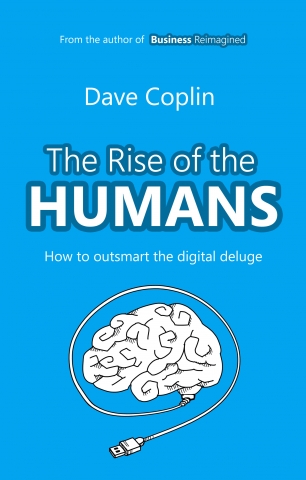
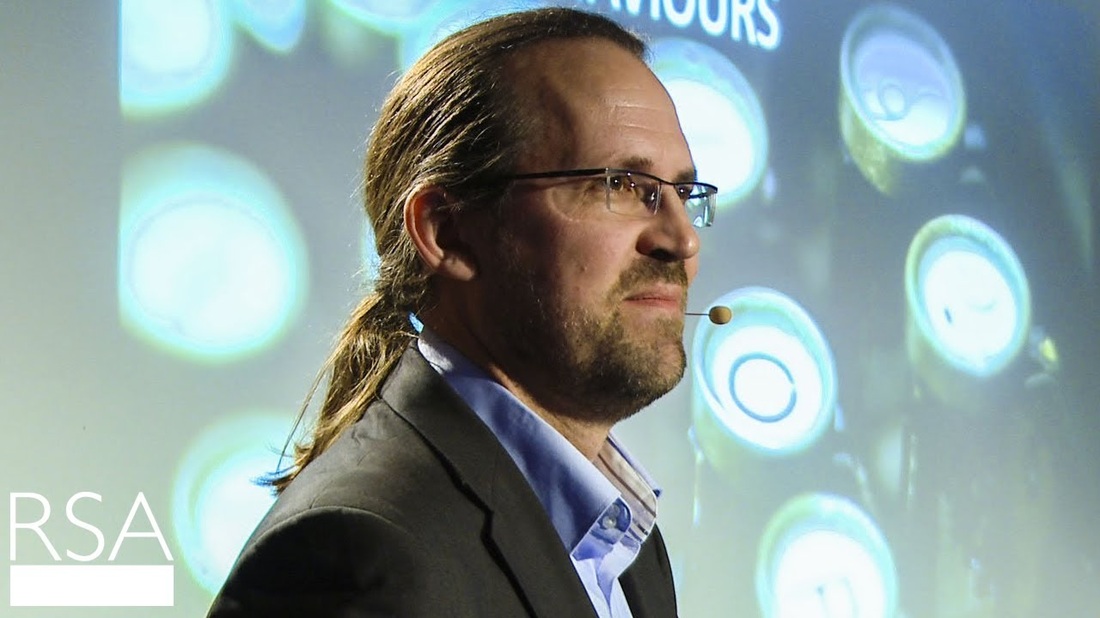
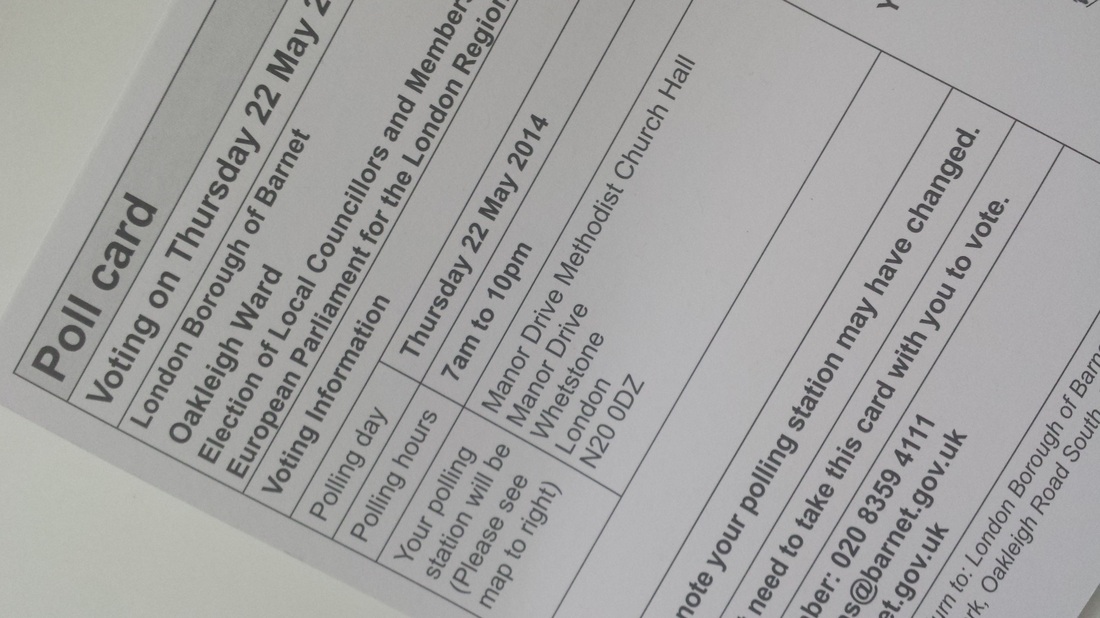
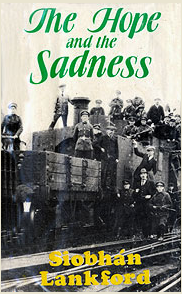


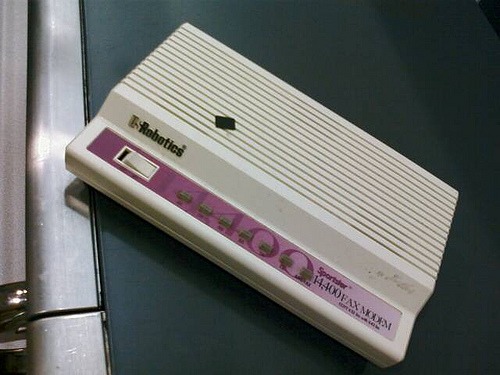

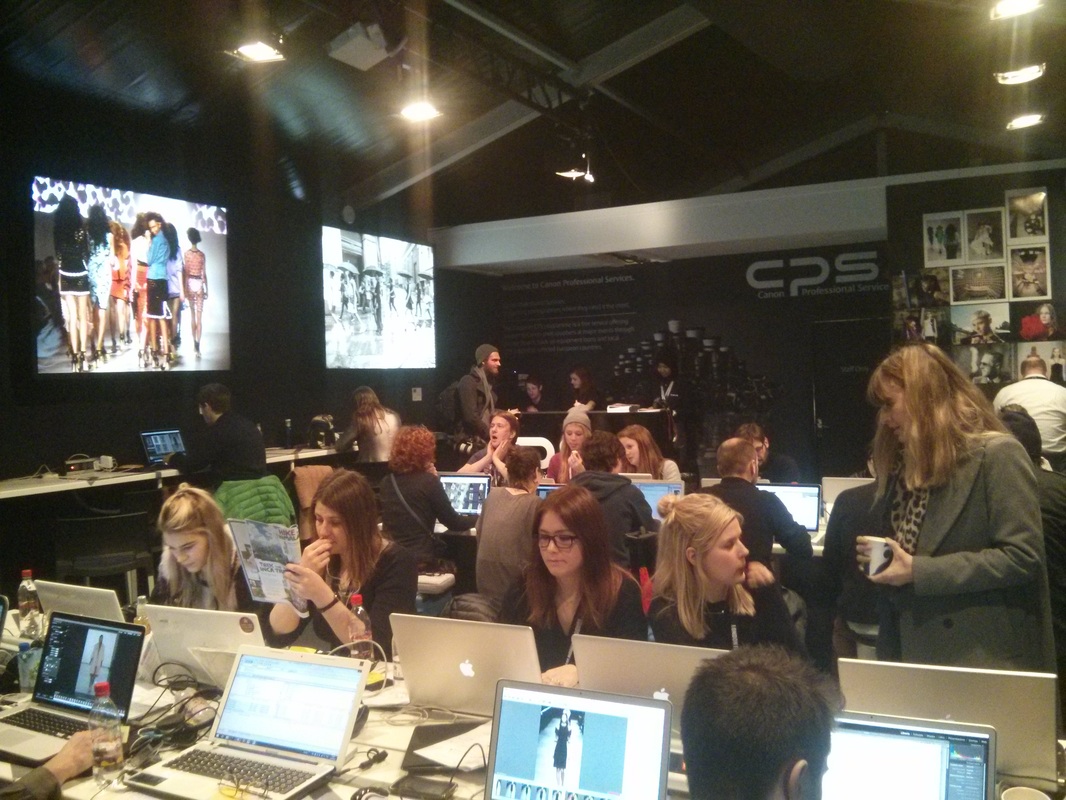
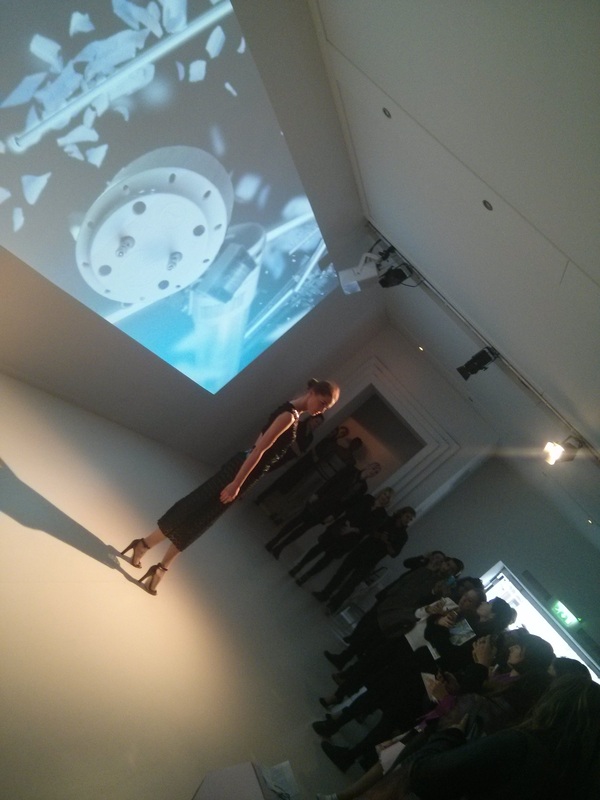
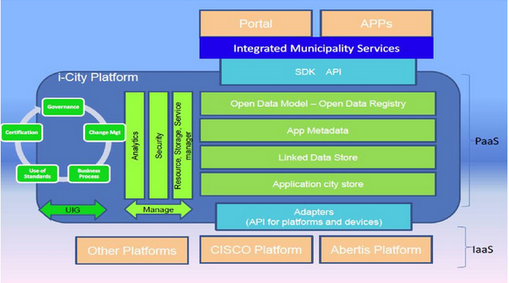
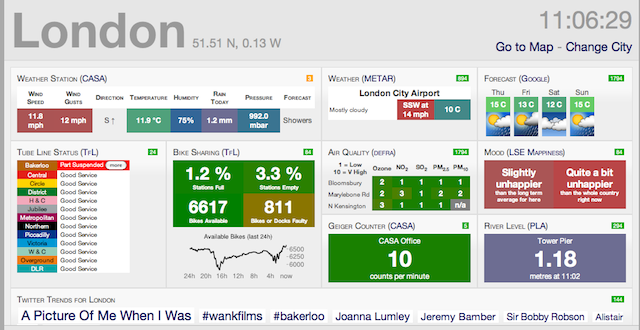
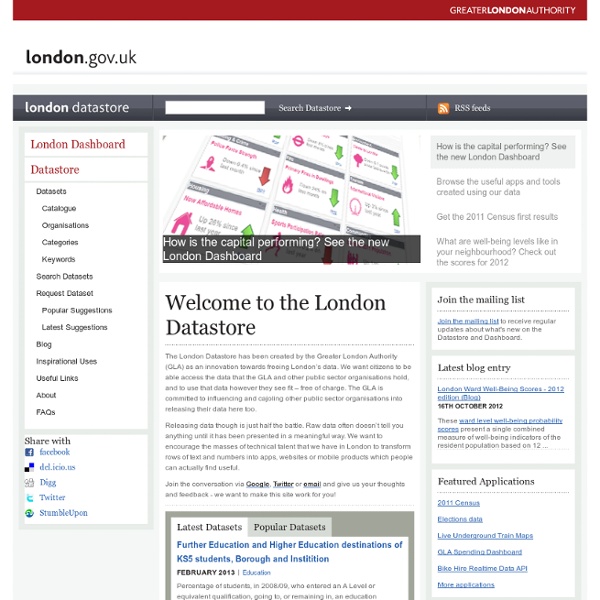
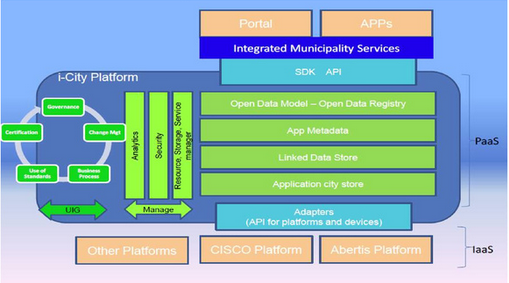
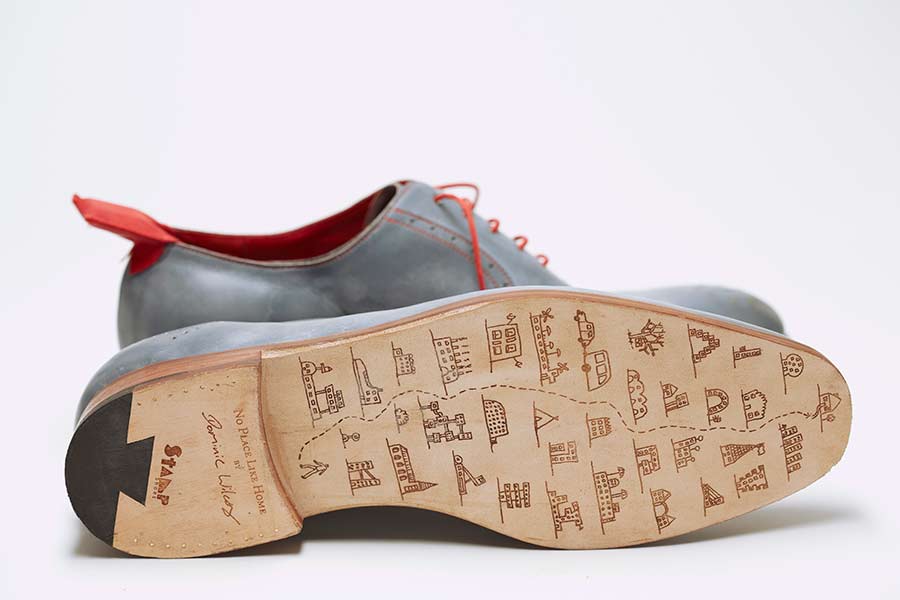
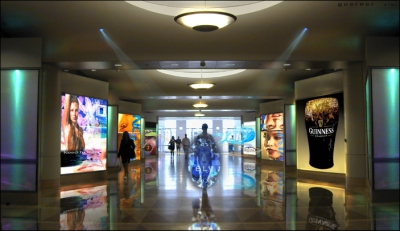
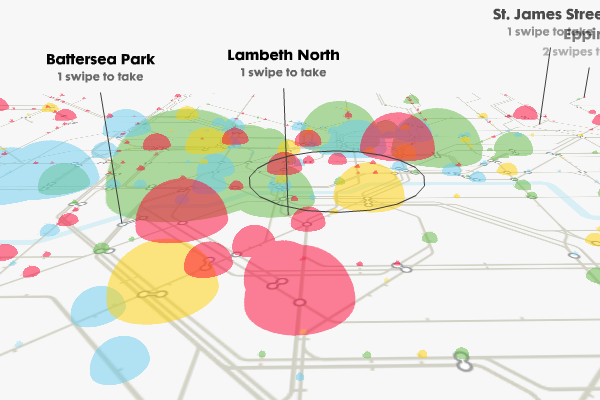

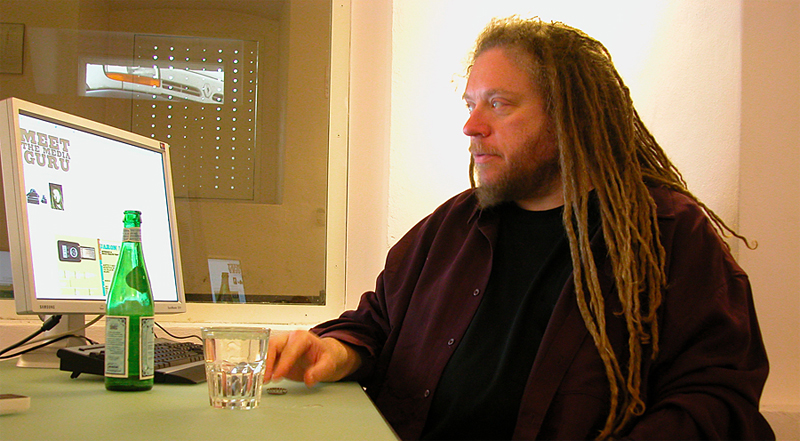
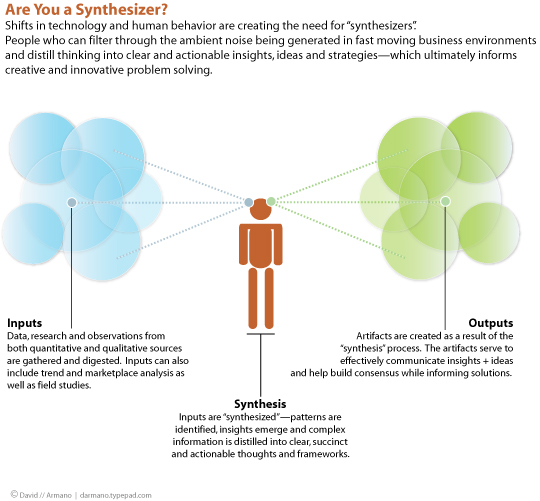


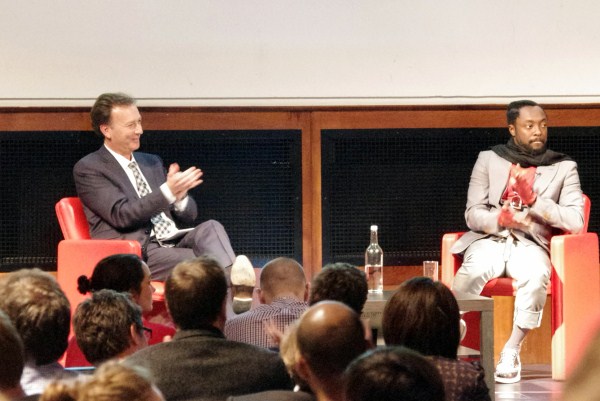
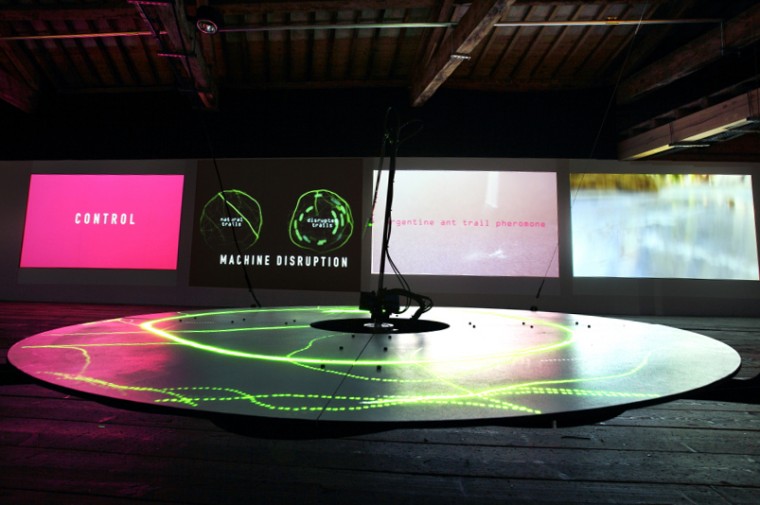
 RSS Feed
RSS Feed